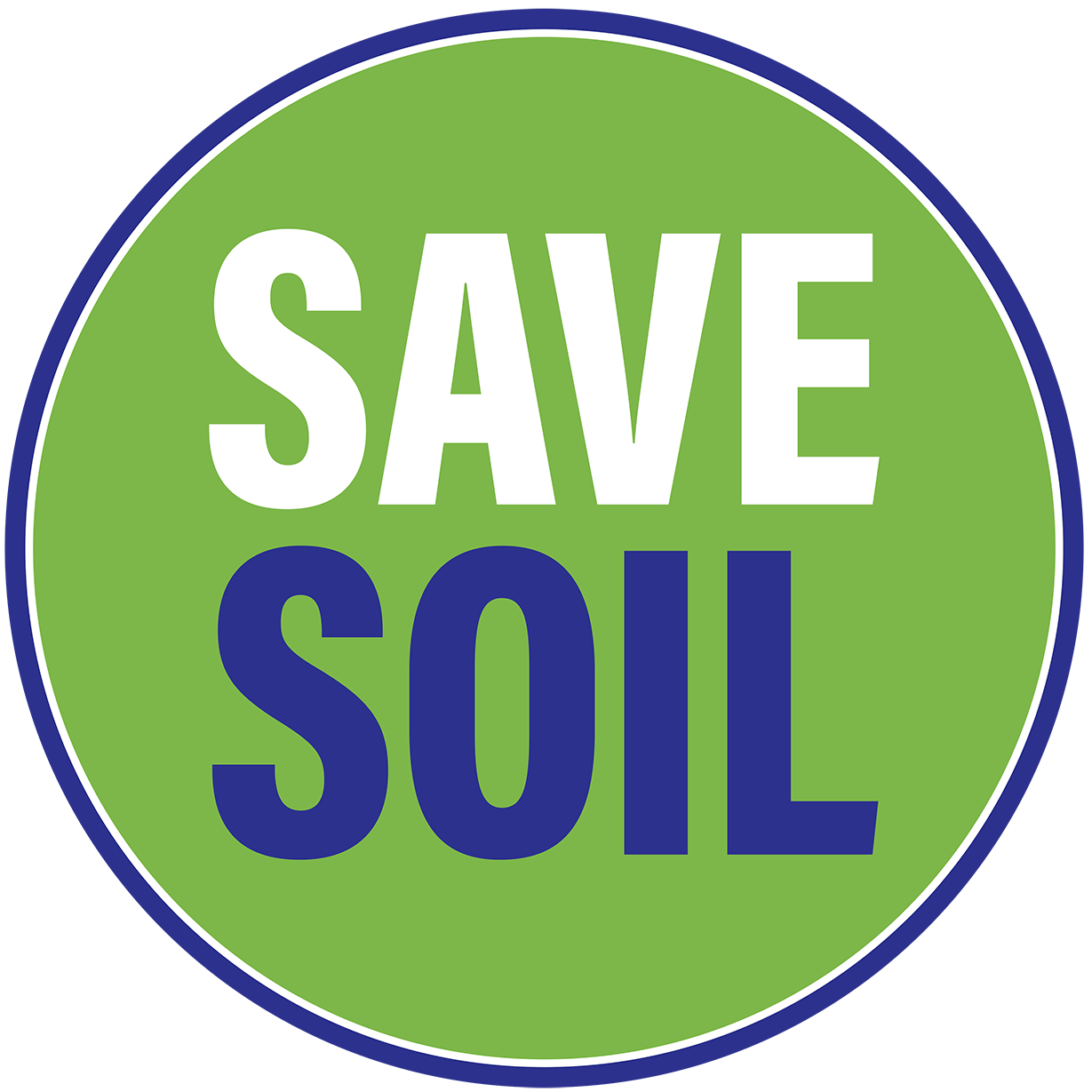Sadhguru Speaks on The Daily Show With Trevor Noah About Save Soil
Trevor Noah is a comedian, political commentator, and television host of the wildly popular The Daily Show. He invited Sadhguru on his show to talk about the Save Soil movement.
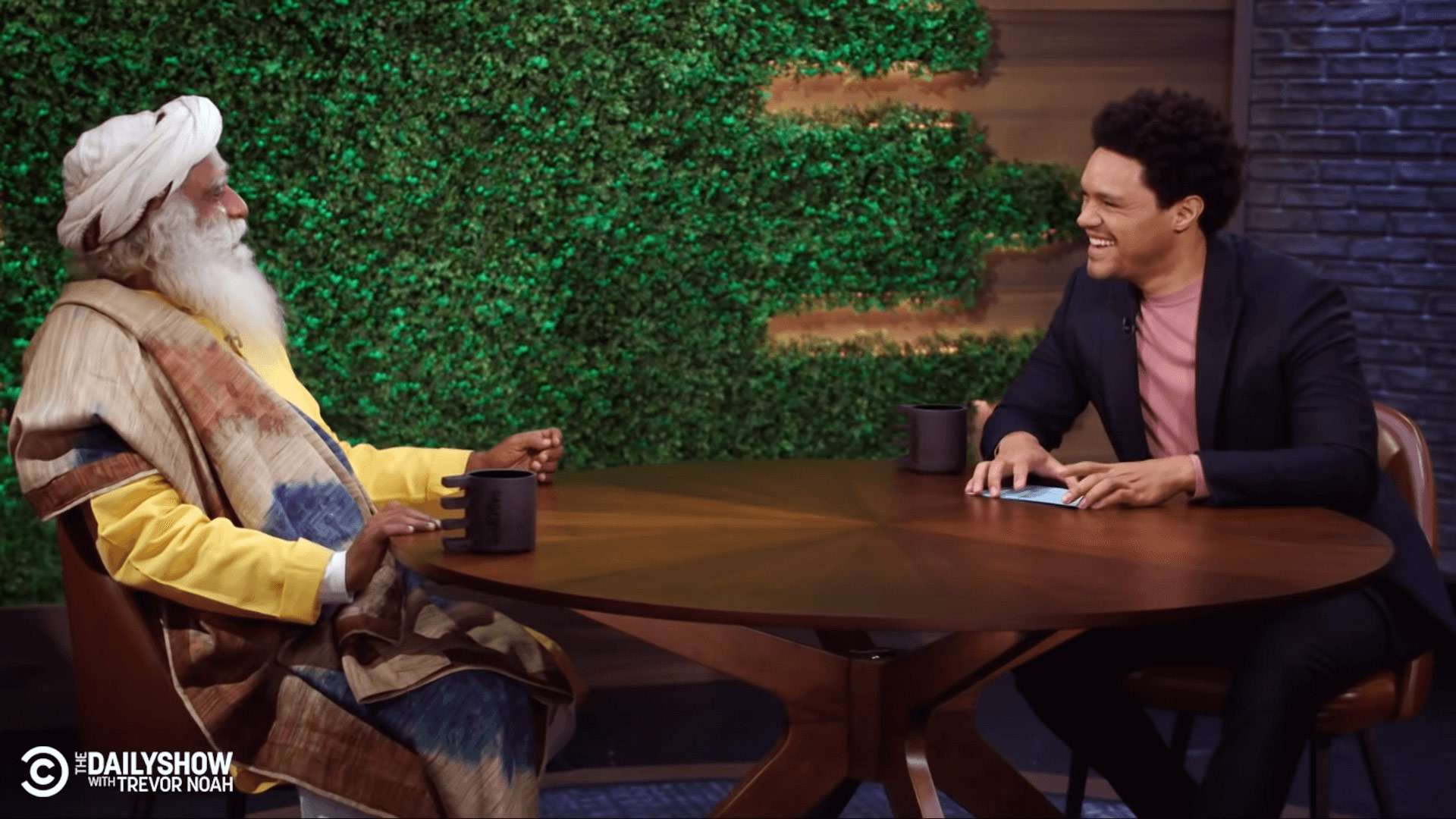
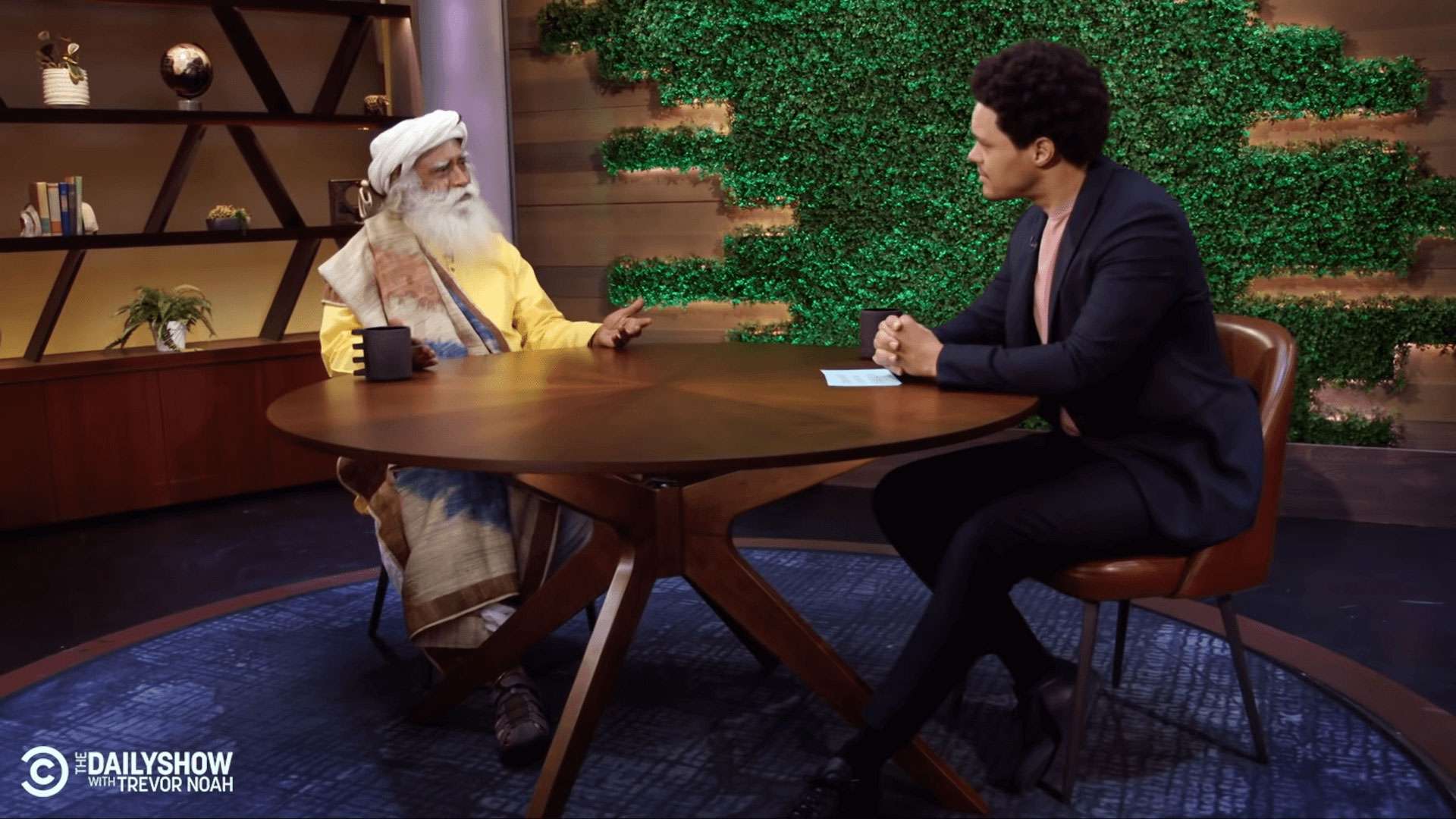
Trevor Noah is a comedian, political commentator, and television host of the wildly popular The Daily Show. He invited Sadhguru on his show to talk about the Save Soil movement.

Trevor: Sadhguru, welcome to The Daily Show. You see now, this is weird for me because we tried to start this interview, and then we had a technical issue, and now we’re starting the interview again. And now I am like, “Am I being as authentic as I could be with you as a Guru or is this, in and of itself, inauthentic?”
Sadhguru: Just be yourself. There is nothing called “authentic.” No one knows what is authentic because human beings are a consequence of a thousand things they have picked up all over.
Trevor: Man, that’s deep. We’re going to have a good time, I can tell. By the way, I woke up today a lot unhappier than I woke up yesterday because I had to do all the research for our interview. And I knew that there is war. I knew that we’re facing a climate crisis. And then now, thanks to you, I know that we also are facing a soil crisis, where some people are estimating that if we do nothing, in 50 years’ time, we may not be able to grow anything because we may run out of soil. Forgive my ignorance – I did not know that soil is even something that we could run out of.
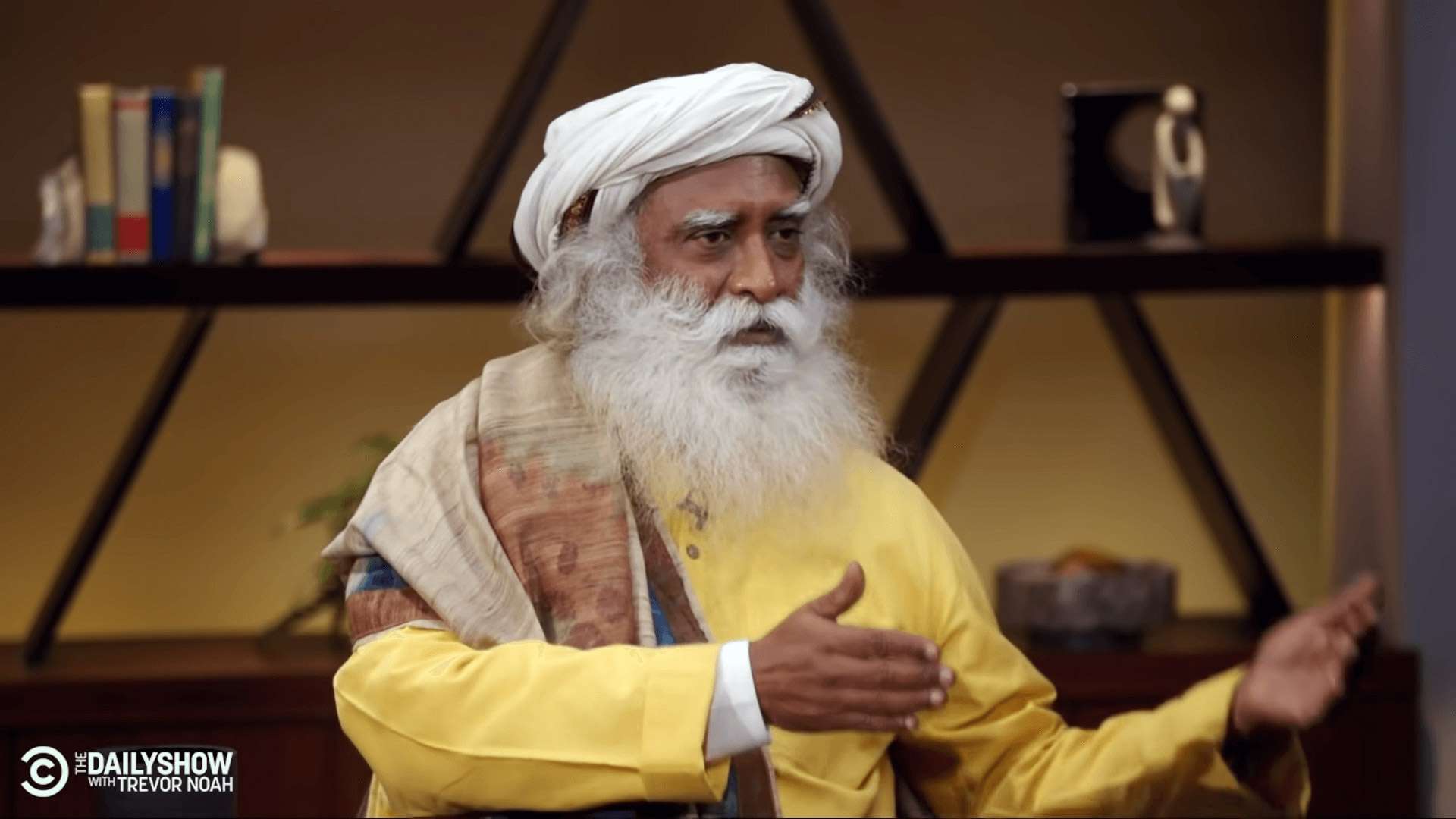
Sadhguru: It has happened in the last 50 to 100 years of industrialized farming – the organic content in the soil has been going away because there is no replenishment. To replenish the soil, we either need vegetative matter or animal waste. Both of them have disappeared from the farms. We thought we could do everything with machines.
Machines can do the work that animals and human beings were doing. But organic content cannot come from a machine. It has to come from vegetative or animal waste, and that is not there. If you add organic content to sand, it becomes soil. If you take away organic content from soil, it becomes sand. Right now, desertification is one of the most serious problems. As you said, in 50 or 60 years’ time, there will not be enough soil to grow crops.
But the more important thing is that by 2045, scientists are expecting that we will grow 40% less food than what we are growing right now, and our populations will be over 9.2 billion. That is not a world you want to live in. That is not a world you want to leave for your children. So, we need to act now. Why it is very important to act now and enshrine this in our policy is that according to the UNFAO (United Nations Food and Agriculture Organization), on an average, 27,000 species are going extinct per year.

Trevor: Is that because of how we farm, or is that a natural consequence of existence?
Sadhguru: Because there is no organic content for the microbes. As you know, without gut microbes, you cannot digest the food you eat. Similarly, without microbial activity in the soil, the plants are not able to get the necessary nourishment from the soil. So, we are throwing chemicals to boost [the plants], but [the produce is] without the needed nourishment. On an average, the drop in nourishment [of food grown] in the United States from the early 20th century to now is approximately 90%.
For one orange you ate in 1920, you need to eat eight oranges today to get the same nutrients. That is simply impractical. We are moving to a place where food production is sliding down gradually. The FAO predicts that by 2035, there could be dozens of civil wars across the world because of food shortages. And that is not necessarily in African countries or South America. It could be anywhere. The World Food Program talks about famines around Chicago, Illinois, by 2035.
Trevor: This is terrifying. Before the pandemic, I think there was a certain hubris that humans had about everything. We just believed it would always go on. You hear these doomsday prophecies, or warnings about the world ending at some point, or humans not being able to inhabit the planet. But until the pandemic, I feel like we did not have a tangible example of the world stopping.
People would even say, “How do you stop the world? How can you just stop travel? How could you stop countries?” And now we have seen it.
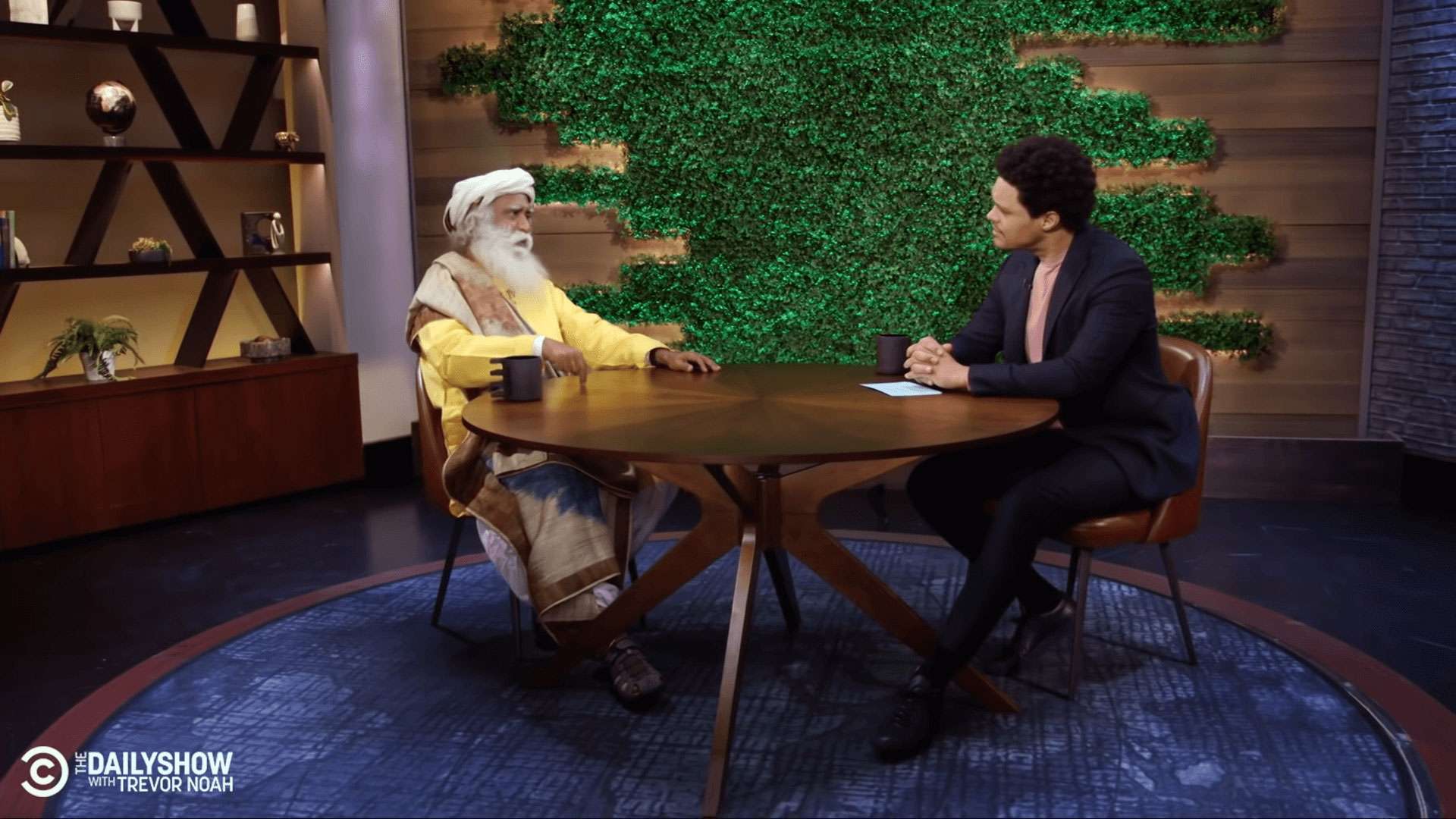
Sadhguru: This is not a doomsday prediction. This is a wake-up call. We are at a cusp of time where if we do the right things now, we can make a significant turnaround in another 15 to 20 years.
The organic content in soil should be a minimum of 3–6%. If you raise the organic content in the soil to 8–10%, your irrigation requirements will come down to 30% of what they are because of the water-holding capacity of organically rich soil. If you raise it to 12–15%, your irrigation requirement would come down to 10–15%. That is, instead of 10 liters of water, you’d use 1.5 liters of water for the same crop. That is what needs to happen. And this is the same story everywhere.
When it comes to ecology, when it comes to soil, our national barriers, race, religions, castes, creeds, gender, political ideologies – nothing matters. This is a unifying factor. If we as a generation act now, we can make the necessary policy changes, which is not some rocket science – this is something farmers in the past always knew, but we have forgotten it in the last 50 years.
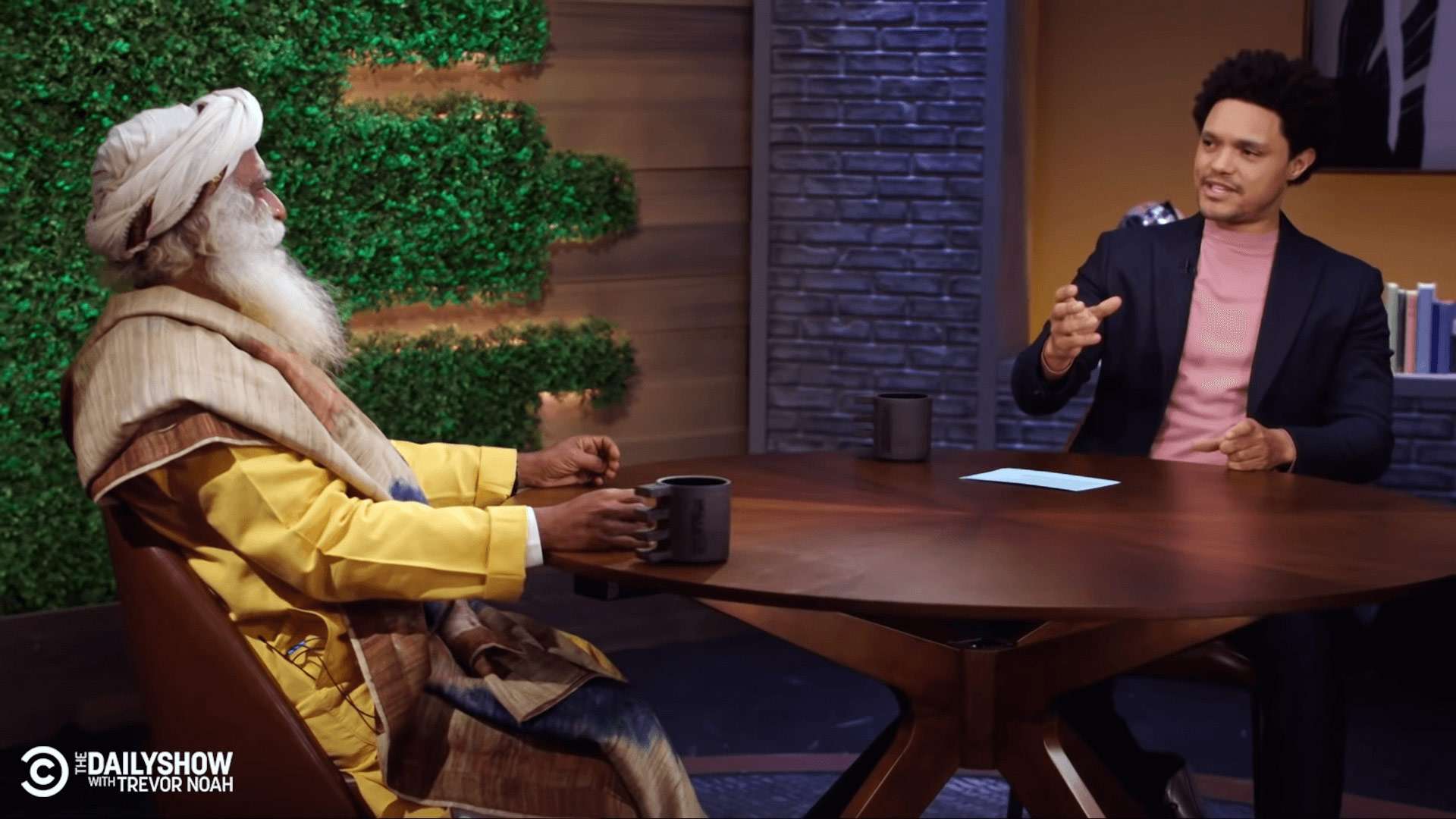
Trevor: Are you getting any signs that governments are enthusiastic to try and do something about this?
Sadhguru: In the last two years, I have been talking to various country heads, politicians, and political parties, and we have written to 730 political parties on the planet to make sure that they include soil and ecology as a part of their election manifestos and political philosophy. Whatever they believe in – right, left, center, whatever they are – soil is one thing which is a common factor for all of us.
We are always looking at what divides us – it is time to look at what unites us. If you do not understand the consciousness of this cosmos and stuff like that, at least you understand you come from the soil, you live off the soil, and when you die, you go back to the soil. What I have seen in the last two years is that everyone knows there is a serious problem. Everyone also knows what the solution is. But it looks like they were all waiting for an idiot to bell the cat. So here I am. I am 65, and I am riding 30,000 kilometers.
Trevor: Sadhguru, I could talk to you forever, and I guess that’s why people come to your events and the gatherings. They read your books. They want to see what you are going to do.
On a journey of soil, it feels like it is yet another thing that we add to our list that governments need to do, that people need to do, that if we don’t do this, it is over.
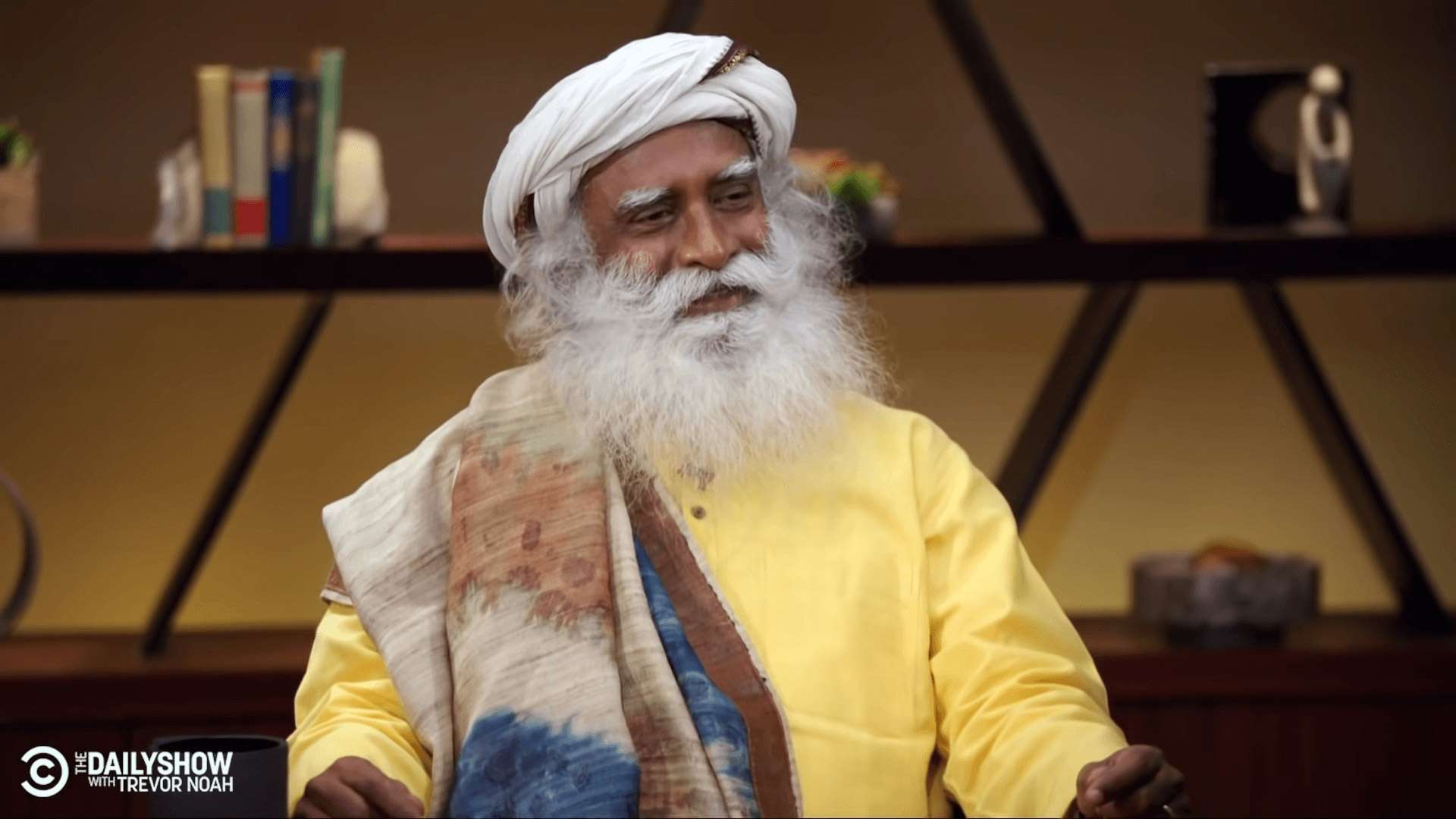
Sadhguru: This is not one more thing, Trevor. I have enough on my hands. I have taken this up because as a generation, if we do not do this now, we will seriously regret this. If we do not enshrine it in the policy now and leave it for another 20 to 30 years’ time, it will get too late. This needs to happen now. So, we want everyone to talk about soil for 100 days, in their own terms. If they do not know anything, we will provide a massive amount of information on our website.
They can pick it up and use it as their own, or they can research themselves – whichever way they want. If they do not know anything else to say, just say, “Save Soil. Let us make it happen,” every day. If you send a message to someone, close it with “Save Soil.” If you call someone, say, “Save Soil.”
Trevor: Save Soil! It was great chatting to you, Sadhguru. Save Soil, my friend. Thank you very much for being here.
